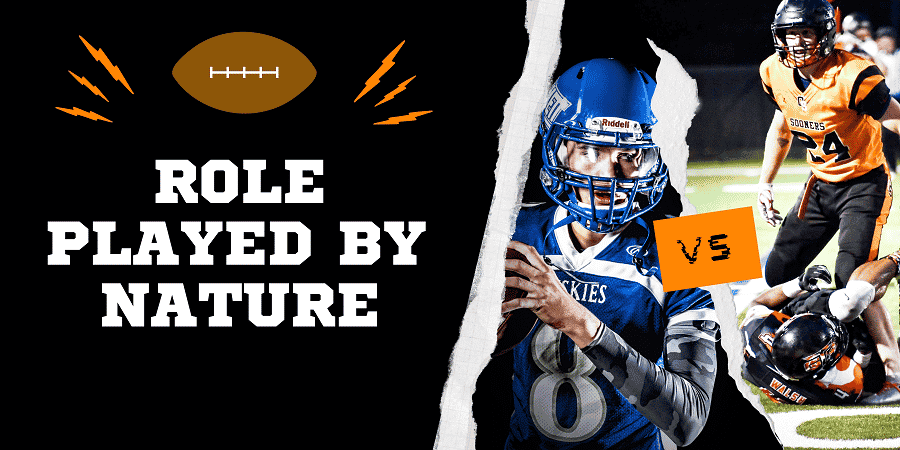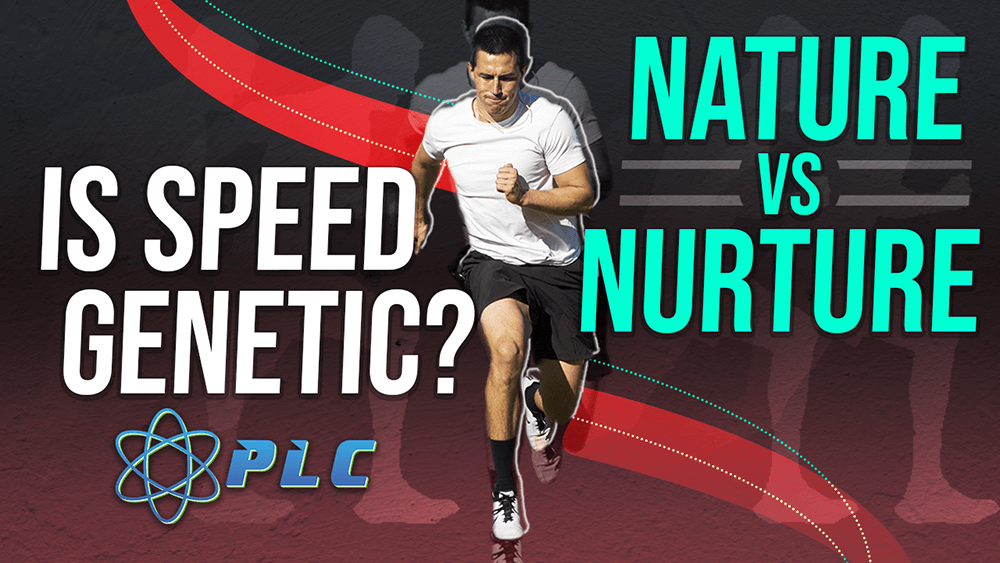I was thinking about this phenomenon and had many questions in mind. Is speed genetic? This takes one back to the age-old nature vs nurture debate. But the answers are really important for someone who has joined sprinting quite late and are wondering can they make a 100m run under 10 seconds.
The results I’m going to discuss in this post are based on my personal research around the 100m. In my opinion, nurture plays a greater role than nature when it comes to speed. However, I’ll try to keep this post objective to arrive at logical conclusions based on scientific data.
Being able to work hard and following the right training program will always be pivotal regardless of your genetic makeup. Obviously, genetics do play a big role as not many sprinters out there can run like Usain Bolt. But polishing these skills requires the right regimen and very strong discipline.
Role Played By Nurture
The Environment
The environment that we are in plays a key role in the athlete you become. Somebody like Usain Bolt, for instance, would not have been able to get that opportunity to discover himself if he had not grown up in Jamaica where they invest a lot into track and field.
Moreover, people who are fast in Jamaica are renowned because of the importance the community places on the athleticism of an individual. On the contrary, countries like Brazil and Germany invest more in Soccer rather than track and field and therefore at world powers in Soccer.
Note* this is just my personal opinion and not scientific evidence.
The Adaptability of the Body
Human bodies are resilient and adapt quickly if you train hard and show strong discipline. The more we stress our muscles and tendons, the more our body parts will adapt to that stress. This shows how you can mold your body to become more athletic if aren’t already by putting yourself through a rigorous training routine.
The cardio and sprint performance of an athlete can develop their muscle fibers and help them perform better. Strength, power, and explosiveness are all essential for sprinting and you’ll need to adapt your training accordingly to become a better athlete overall.
Wolf’s Law
This law suggests that your bones grow and remodel themselves. It’s similar to adaptation within our body as explained above. In the 19th century, Julius Wolf found out that bones are able to recreate themselves.
This happens over a long period of time, but again this shows that human beings are adaptable creatures who can modify their physique quite a bit by going through proper training regimes. Moreover, it also exemplifies that when things as strong as bones in a body can adapt, then certainly other parts of the body i.e. muscles and tendons can also adapt easily.

Impacts Of Genetics On Sprinting
The World Record Holders
It is an interesting fact that since 1968, all of the world record holders in 100-meter dash have been from West Africa or what people refer to as “black athletes” Another interesting record suggests that according to the International Association of Athletics Federations, since 1912, out of 38 individuals, only 10 “non-black” athletes have been record holders. This shows some implication that genetics certainly play an impact when it comes to sprinting.
(I hope nobody takes an offense at the terminologies used above as it’s the only way to describe this phenomenon)
Structure of the Body Parts
It’s a no-brainer that people inherit the structure of their body parts through genes. Here again, “black athletes” tend to have longer limbs with small circumferences giving them a higher center of gravity. Making them better at running and jumping type events.
Asians and Whites of the same height have longer torsos, which impacts their center of gravity as it lowers down a bit. Which is advantageous in Olympic and powerlifting.
The center of gravity plays a big role in how fast the legs of an athlete are moving. If the center of gravity is lower, moving the legs fast becomes difficult when the foot makes contact with the ground.
Related post: Why Flat Feet Make You Faster?
The ACTN3 Gene
This gene correlates with top speed and explosive power. It is essential for any top sprinter to have this gene in their body. The gene is divided into components and it’s important for athletes to have the right part (version R577R) to be explosive.
Moreover, it is found in 98% of Jamaicans and 82% of Europeans. We can’t conclude that just because people like Usain Bolt and Michael Johnson have this gene, they are able to compete at the top level.
This demonstrates the important role genes play when it comes to competing at a high level. However, this is not the only factor because in the 958, there were other athletes alongside Usain Bolt with the same genetic makeup but they were not able to produce the same results. So proper training is always important regardless of the genetic makeup an athlete might have.
Final Verdict
We discussed a few points about the question, is speed genetic and tried to cover the subject thoroughly. I believe genetic makeup does play a role, but nurture is more important when it comes to improving your performance as an athlete.
If an individual is able to train hard, he/she will be able to achieve much more than someone who is naturally gifted but doesn’t go through the training regimes necessary to become a better athlete. For more, you can watch this video below:
I hope this information was useful to you. Do share your thoughts about the nature vs nurture debate when it comes to speed. I’d love to hear from you!
Have a wonderful day ahead.

